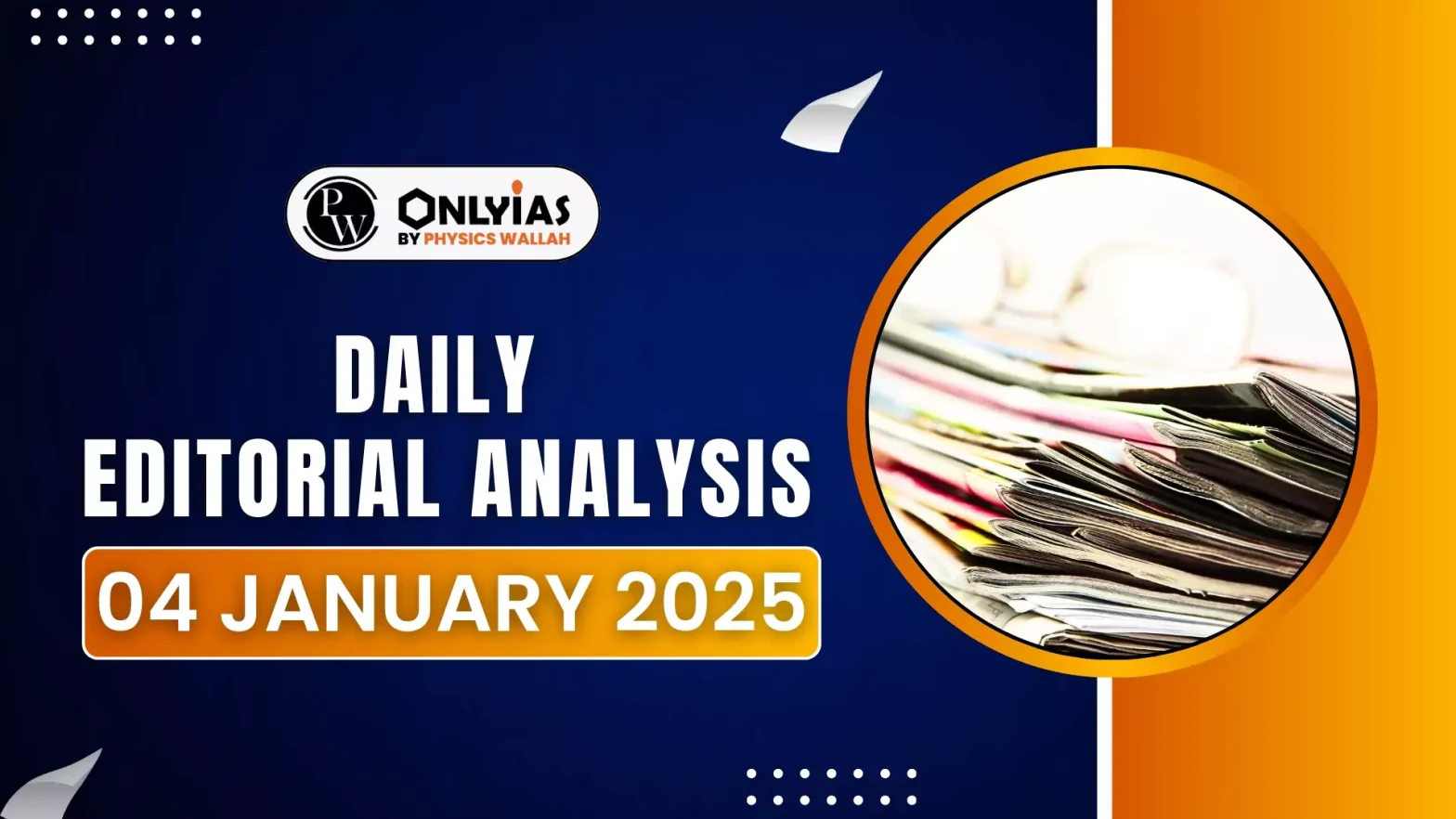The One Nation, One Election (ONOE) proposal, aiming to synchronize Lok Sabha and State Assembly elections, is being pursued by the ruling government for administrative and fiscal benefits. However, critics warn it could undermine India’s democratic and federal structures, as outlined in the Constitution.
Historical Context of Simultaneous Elections
- Early Years Post-Independence: Initially, elections for both Parliament and State Assemblies were held simultaneously.
- However, the system of cooperative federalism was disrupted after the introduction of Article 356 (President’s Rule) in the 1950s.
- The first use of Article 356 in Kerala in 1959 marked the beginning of federal overreach, where the Union’s power began to override State autonomy.
- Misuse of Article 356: Despite Dr. B.R. Ambedkar’s optimism about Article 356 being a “dead letter,” its misuse for political expediency continued.
- As H.V. Kamath said, “Dr. Ambedkar is dead, and the Articles are very much alive,” highlighting the frequent use of this provision to dismiss State governments.
- From 1950 to 1994, governments misused Article 356 to dismiss politically unwanted State governments.
- Even after the S.R. Bommai case aimed at curbing arbitrary actions, its invocation has remained frequent (over 130 times), distorting its original intent, as seen in cases like Manipur today, where action is absent despite the need.
- Anti-Defection Law: The Anti-Defection Law (52nd Amendment, 1985) aimed to prevent defections by disqualifying legislators who switch sides.
- However, loopholes in the law, such as the absence of a time-bound decision process and provisions for “group defections,” have rendered it ineffective.
- As a result, defections continue to occur, leading to unconstitutional changes in regimes.
Enroll now for UPSC Online Classes
Government’s Stance on ONOE
- Admonished Efficiency: ONOE is believed to streamline election processes, reducing administrative burdens.
- Improved Governance: By aligning election cycles, the government aims for smoother policy implementation and continuity.
- Cost Savings: Synchronizing elections is expected to reduce the financial and logistical costs of holding separate elections.
Critics Stance on ONOE
- Federalism Under Siege: The misuse of Article 356 and defections have undermined state governments and federalism.
- Strengthening federalism required addressing these issues rather than introducing ONOE.
- Impairment of Democratic Representation: Synchronizing elections would blur State and national issues, limiting voters’ ability to assess State performance and undermining States’ focus on local problems.
- Truncated Terms: Midterm elections to align with synchronized cycles could shorten State government terms, undermining democratic legitimacy and the principle of equal representation.
- This denies voters the full tenure of their elected government and creates disparities in governance.
- Cost Implications: Truncated terms under ONOE would affect both State governments and the Lok Sabha.
- For instance, during the political turbulence of the 1990s, elections occurred in 1996, 1998, and 1999.
- With ONOE, another election in 2001 would have led to four elections in five years, increasing costs and negating ONOE’s claimed efficiency.
- Policy Implications: The reduction in the tenure of a government could disrupt policymaking, making it difficult for governments to analyze issues, implement solutions, and make course corrections, further hindering effective governance.
Way Forward
- Addressing Core Issues: Before pursuing One Nation, One Election, it is essential to address systemic issues such as the misuse of Article 356, strengthening anti-defection laws, and ensuring the stability of State governments.
- Preserving Federalism: The federal character of the Constitution must be preserved.
- States should remain empowered to address localized issues without excessive centralization.
- ONOE could undermine India’s pluralism and democracy by promoting centralization.
- Strengthening State Autonomy: Rather than pushing for synchronized elections, India should focus on enhancing the autonomy of State governments, ensuring they function independently and are not undermined by national political forces.
Check Out UPSC NCERT Textbooks From PW Store
Conclusion
A hasty implementation of the ONOE system without addressing the underlying structural vulnerabilities would represent an attack on India’s Constitutional framework. True democratic governance requires more than just conducting simultaneous elections—it requires a commitment to federalism, strengthening State governments, and ensuring effective and accountable governance at all levels.
![]() 4 Jan 2025
4 Jan 2025

